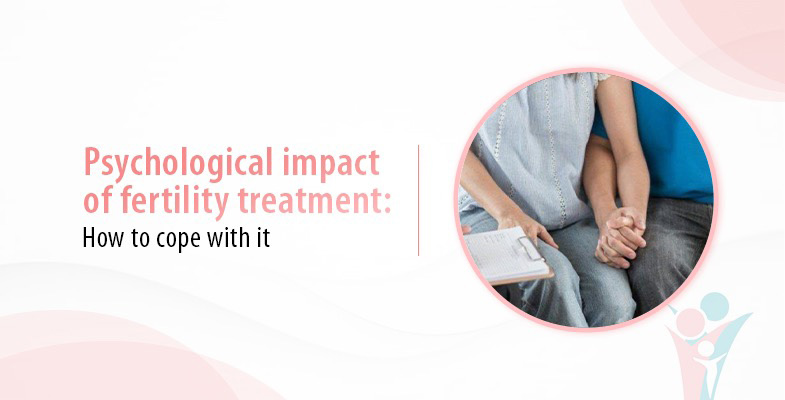
The inability to conceive a child despite trying for long can have a devastating psychological impact, and millions of couples around the world affected by infertility have to deal with this unfathomable sense of loss and grief, leading to great emotional upheavals. It’s not easy to cope with the plethora of critical medical decisions and the uncertainty about outcomes associated with fertility treatment.
Often, it’s the worst life crisis that can confront a couple which, apart from the overwhelming sense of loss, can also trigger anger, guilt and shame. It can lead to depression, anxiety and a terrible feeling of alienation. Just remember that coming to grips with infertility, the subsequent decision to go for assisted reproduction and the psychological impact of the treatment, is not easy and sometimes you will need support from a certified mental health professional. It’s very important to know that you are not alone in this journey.
When should you seek psychological counseling?
Infertility treatmentcould be an emotional rollercoaster for most couples, and feeling overwhelmed is perfectly normal. You need to talk to the treating doctor and counselor in case you are feeling like any of these:
- Losing interest in normal activities
- A sense of depression that engulfs you
- You feel your relationship with your partner and others is on the edge
- Can’t take your mind off your infertility problem
- Feel anxious all the time
- Detect a fall in your efficiency levels
- Have trouble concentrating
- Experience difficulty in sleeping
- Find a change in appetite or weight
- Have suicidal thoughts
- Shun company
- Experience a constant sense of guilt, bitterness or anger
How can counseling help you cope better?
- The primary goal of the counselor is to help couples cope better with the physical and emotional factors linked to infertility, and the medical treatments.
- Choosing the right medical treatment or exploring other family-building options can be a tough decision where your infertility specialist and the counselor can play a big role.
- A counselor can teach you deal with stress, anxiety or depression by using problem-solving techniques which can help you cope better with grief, fear, and other negative emotions.
- We all have in-built coping skills which sometimes take a backseat when a sense of grief and futility overwhelms us. Therapy prior to and during the treatment can help in re-charging those skills and help in achieving a place of positivity and hope.
- These exercises could also often turn the life crisis of infertility on its head to help the individual/couple embrace rewarding pursuits for progress, armed with more clarity of thought.
- Sometimes, the hormones used in infertility treatment affect the mood of the patient, prior knowledge and understanding can help a person to cope better. Counselingby the treating doctor and the therapist is a vital part of infertility treatment.
What can I do on my own to cope better?
The journey through IVF could be very tough, and there’s no right or wrong way to feel about it. Emotions vary from person to person. However, you can try these simple steps to keep your negative emotions in check:
Don’t fight your feelings: Acknowledge your feelings and emotions, don’t try to suppress or deny them, no matter how intense and destabilizing they are.
Stay in the moment: Try and perceive your emotions as a passing phenomenon, even if they are particularly painful. Tell yourself, “Tomorrow will be better”.
Talk to people: Opening up about your feelings and secret fears to someone you can lean on can really help. It could be your partner, a family member or a close friend or colleague. It strengthens the sense of not being alone in your fertility journey.
Focus on what you can control: There are only certain things which are in your grasp, like when you would like to start a treatment cycle, the length of break between cycles, or when to seek another opinion. Try to stay with these tangibles and remember to plan for the short term and keep your plans flexible.
Stay informed: Get clear understanding of critical issues like treatment cost, success rates based on your specific circumstances and all the different treatment options available. This will help you make better choices and more confident about meeting challenges head-on.
Medicines might help: For some people, antidepressant medications may be required for the treatment of depression and anxiety. Most of these can be safely used in pregnancy as well.


